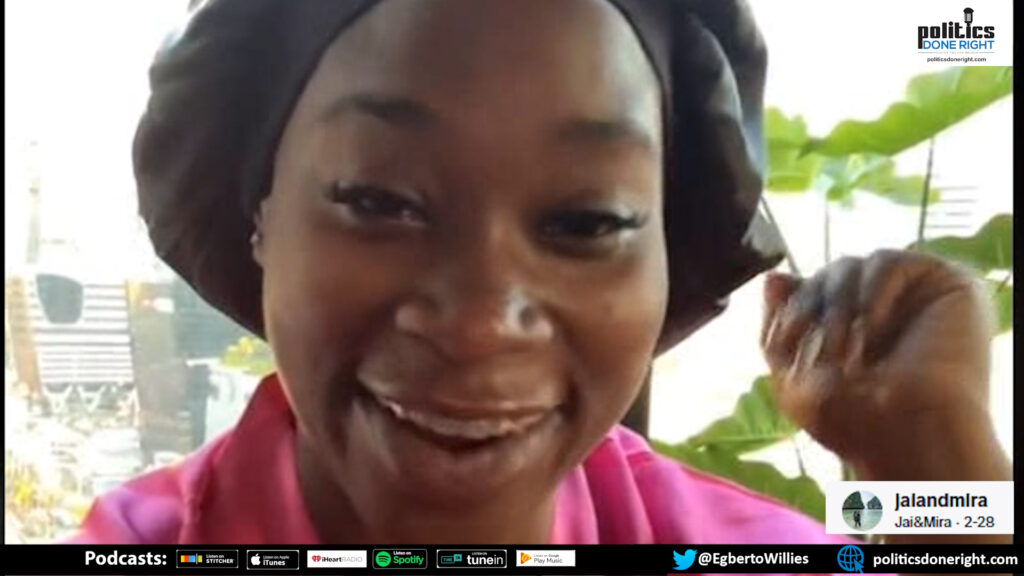An American traveler ( jaiandmira ) in Thailand experiences unexpectedly affordable and efficient healthcare, highlighting stark contrasts with the expensive U.S. system and emphasizing the need for urgent healthcare reform in America.
American ( jaiandmira ) Healthcare Surprise in Thailand
Podcasts (Video — Audio)
A young American woman, Mira ( jaiandmira ), traveling in Thailand, found herself grappling with a health crisis. As she narrated her story on TikTok, her experience highlighted the stark contrast between the healthcare systems in the United States and Thailand. Her account not only underscores the inefficiencies and exorbitant costs of American healthcare but also challenges the perception that the U.S. provides the best healthcare in the world.
Mira found it eye-opening to see how healthcare operates in other countries. Her authentic experience serves as a powerful testament to the reality of healthcare systems outside the U.S. Her journey from sickness to recovery in a foreign land offers a compelling narrative on the disparities in healthcare access and affordability.
The Healthcare Experience in Thailand
Mira began her video by explaining her symptoms—chills, cold sweats, and eventually severe vomiting, which left her unable to keep down any solid food or liquids. Desperation drove her to seek medical help at a hospital in the middle of the night, a daunting task in an unfamiliar country. However, contrary to her fears, her experience at the Bangkok Hospital was surprisingly positive.
Upon arrival, she was directed to the fourth floor designated for international patients, indicating a level of organization and consideration for foreigners often lacking in the U.S. healthcare system. She underwent several tests, including a COVID-19 test, a strep throat test, and another unspecified test, all of which returned negative results. The thoroughness of her examination, coupled with the efficiency of the hospital staff, was commendable.
Cost of Healthcare: Thailand vs. the United States
The most striking part of her story was the cost of her medical treatment. For all the tests, a physical evaluation, and the prescribed medications, she was charged a mere 4,132 baht, approximately $113 USD. This starkly contrasts the exorbitant fees similar services would incur in the United States. She estimated that the same level of care in the U.S. could quickly amount to $10,000 to $20,000, not including the cost of medications, which she would have had to purchase separately.
This stark disparity highlights a fundamental issue with the U.S. healthcare system: affordability. In the U.S., medical bills can lead to financial ruin for many individuals, even those with insurance. Her account resonates with countless Americans who have faced similar financial burdens due to medical expenses.
A Broader Perspective on Healthcare Systems
Her story sheds light on the broader implications of healthcare accessibility and affordability. The U.S. prides itself on being a medical innovation and technology leader, yet it fails to provide equitable healthcare to all its citizens. The high cost of medical care in the U.S. often deters people from seeking necessary treatment, exacerbating health issues and leading to more severe outcomes.
In contrast, countries like Thailand prioritize affordable healthcare, ensuring that even international visitors can access quality medical services without incurring insurmountable debts. This approach reflects a fundamental difference in how healthcare is valued and provided. While the U.S. healthcare system is driven by profit, many other countries view healthcare as a basic human right.
The Need for Healthcare Reform in the U.S.
The young woman’s experience serves as a poignant reminder of the urgent need for healthcare reform in the United States. It calls into question the current system’s ability to meet the needs of its citizens and highlights the benefits of a more inclusive and affordable healthcare model. Progressive voices have long advocated for a shift towards a healthcare system that prioritizes people over profits, and her story adds a personal dimension to this ongoing debate.
The Role of Capitalism in Healthcare
One cannot discuss healthcare in the U.S. without addressing the role of capitalism. The profit-driven nature of the American healthcare system means that many people are left behind, unable to afford the care they need. This starkly contrasts with systems in other countries where healthcare is considered a public good, and profit margins do not dictate the quality or accessibility of care.
The young woman’s TikTok video is a testament to the benefits of a healthcare system that values human life over financial gain. Her relief at the affordability and efficiency of Thai healthcare is palpable and serves as a powerful critique of the American system. It is a call to action for policymakers to reconsider the U.S. healthcare system’s priorities and strive for a model that ensures access and affordability for all.
Conclusion
Mira’s experience in Thailand offers a compelling narrative on healthcare access and affordability disparities between the U.S. and other countries. Her story underscores the urgent need for reform in the American healthcare system, highlighting the benefits of a more inclusive and affordable model. As more Americans become aware of these disparities, the call for change will grow louder. Her journey serves as a reminder that healthcare is a fundamental human right, and it is time for the U.S. to recognize and act upon this truth. It is time for Medicare for All.
You can refer to reputable sources like The Commonwealth Fund and The World Health Organization for further reading on the differences between healthcare systems and the need for reform. These sources provide comprehensive analyses and data highlighting the benefits of more equitable healthcare systems worldwide.
Viewers are encouraged to subscribe and join the conversation for more insightful commentary and to support progressive messages. Together, we can populate the internet with progressive messages that represent the true aspirations of most Americans.

